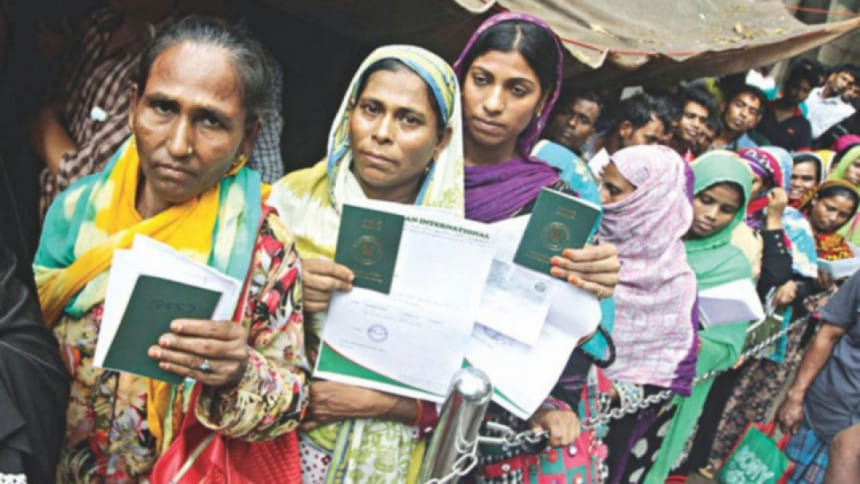A platform for systematically abused female migrant workers

It is an unfortunate truth that female migrant workers are some of the most vulnerable people in Bangladesh, systematically subjected to harassment and abuse by recruiters and traffickers in the country, and mistreatment and violence by their employers overseas. According to the International Organization for Migration (IOM), 70 percent of female migrant workers are abused and beaten by their employers, with their mobility restricted and wages withheld. We are all too aware of the horrific stories of trafficking where women and girls, who dare to dream of a better life for themselves and their families, are tricked by unscrupulous recruiting agents and brokers into modern-day slavery. And even those who make it abroad through formal channels are left in vulnerable conditions, without anyone to register their complaints or protect their rights.
Despite the alarming plight of women migrant workers, there seems to be no sustained effort by the government to bring about systemic changes for safer workplaces abroad. In an overwhelming majority of cases, Bangladeshi embassies in the host countries are unable or unwilling to address the human rights abuse of our female migrants in a timely and effective manner, leaving them helpless in a foreign land where they don't know anyone or even its language. When asked about the syndicates that are preying on economically and socially vulnerable women and girls, the relevant ministries' stock response is to blame the victims and their "greed."
Given these dire circumstances, we welcome the initiative to form a national alliance on women migrant workers. The Alliance for Women Migrant Voices (AWMV), consisting currently of 22 members—seven national-level and 15 local NGOs—aims to strengthen networking among women's rights organisations for taking a proactive role in ensuring safe female migration and addressing issues of discrimination and violence in their workplaces. It will also advocate for new migrant-friendly laws and policies and build the capacity to voice their needs and demands.
The alliance, we hope, will work closely with women and girls to raise awareness about the dangers of going through informal recruitment channels, build their skills so that they can get better-paid and more secure jobs abroad, and ensure that once in the host country, they have a communication channel with the Bangladesh embassy in the concerned country as well as with an alliance member. It also must put pressure on relevant stakeholders to prioritise women workers' rights over remittances.
We urge the government to utilise the network to identify the key challenges faced by female migrants and actually implement the recommendations put forward by the alliance in the future. It is, after all, in everyone's best interests to ensure a safe future for our remittance warriors.

 For all latest news, follow The Daily Star's Google News channel.
For all latest news, follow The Daily Star's Google News channel. 







Comments